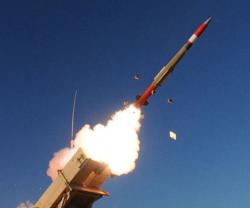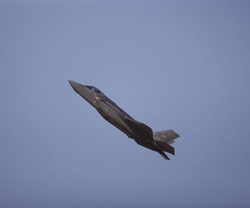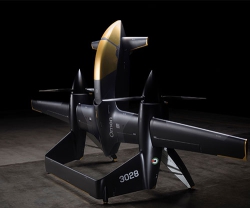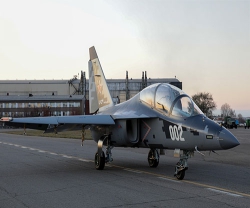Designs for more than two dozen major US weapons systems have been compromised by Chinese hackers, a US report said on Monday, as a news report in Australia said Chinese hackers had stolen the blueprints for Australia's new spy headquarters.
Citing a report prepared for the Defense Department by the Defense Science Board, the Washington Post reported that compromised US designs included combat aircraft and ships, as well as missile defenses vital for Europe, Asia and the Gulf.
Among the weapons listed in the report were the advanced Patriot missile system, the Navy's Aegis ballistic missile defense systems, the F/A-18 fighter jet, the V-22 Osprey, the Black Hawk helicopter and the F-35 Joint Strike Fighter.
The report did not specify the extent or time of the cyber-thefts or indicate if they involved computer networks of the US government, contractors or subcontractors.
But the espionage would give China knowledge that could be exploited in a conflict, such as knocking out communications and corrupting data, the Post said. It also could speed Beijing's development of Chinese defense technology.
In a report to Congress earlier this month, the Pentagon said China was using espionage to modernize its military and that its hacking was a serious concern. It said the US government had been the target of hacking that appeared to be “attributable directly to the Chinese government and military.”
China has dismissed as groundless both the Pentagon report and a February report by the US computer security company Mandiant, which said a secretive Chinese military unit was probably behind a series of hacking attacks targeting the United States that had stolen data from 100 companies.
In Australia, a news report said hackers linked to China stole the floor plans of a A$630 million headquarters for the Australia Security Intelligence Organisation, the country's domestic spy agency.
The attack through the computers of a construction contractor exposed not only building layouts, but also the location of communication and computer networks
Australia security analyst Des Ball told the ABC in the report that such information made the yet to be completed spy headquarters vulnerable to future cyber attacks.
The building is designed to be part of a global electronic intelligence gathering network which includes the United States and the UK, but its construction has been plagued by delays and cost blowouts, with some builders blaming late design changes on cyber attacks.
Australian officials, like those in the United States and other Western nations, have made cyber attacks a security priority following a growing number of attacks of the resource rich country, mostly blamed on China.
Despite being one of Beijing's major trade partners, the country is seen by China as the southern fulcrum of the US military pivot to the Asia-Pacific and in 2011 agreed to host thousands of US Marines in near-permanent rotation.
Australia is a major buyer for US weapons systems and is one of the largest overseas customers for the Lockheed Martin manufactured F-35, as well as for Boeing's F/A-18 Super Hornet and associated weapons systems.
Chinese telecommunications giant Huawei was last year barred from bidding for construction contracts on a new Australian high-speed broadband network amid fears of cyber espionage.






















